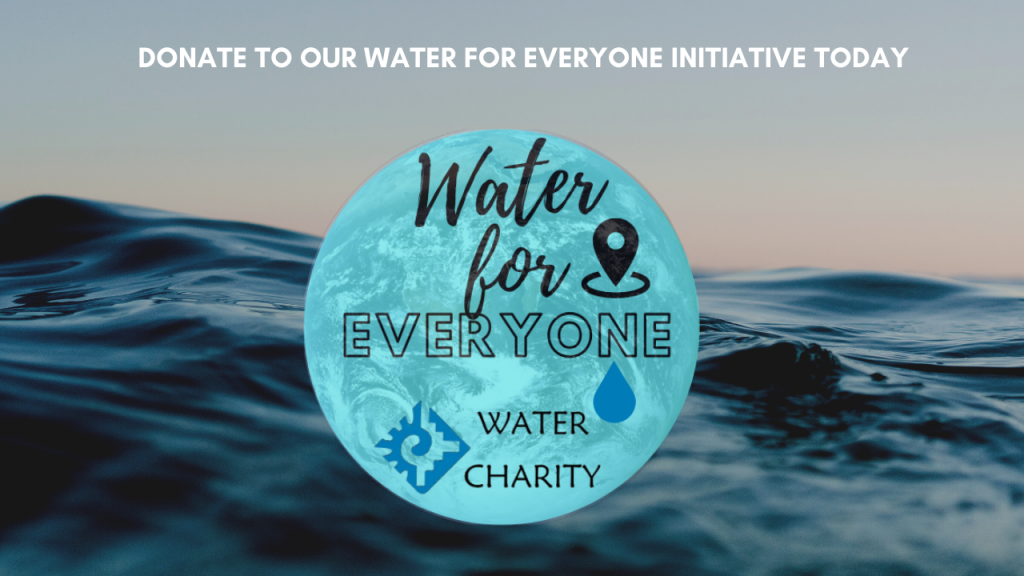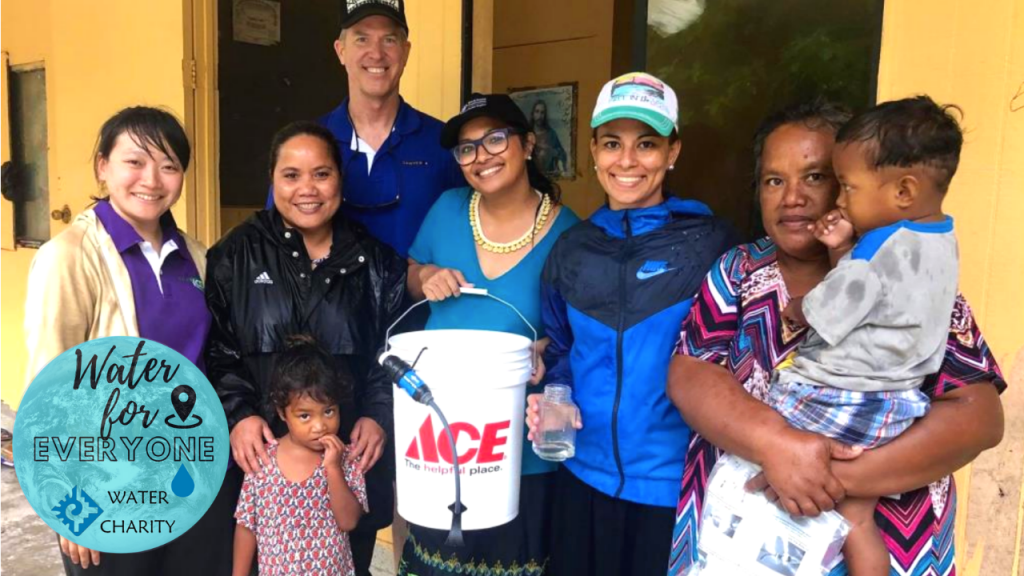
The Republic of the Marshall Islands
The Republic of the Marshall Islands (RMI) comprises a series of 29 coral atolls and five islands in the Pacific just north of the equator. This tiny republic of some 53,000 inhabitants has major water supply challenges, particularly on the two main islands, Majuro (28,000 people in 970 ha at 6.8 people per household) and Ebeye, (10,000 people in 40 ha at 8.4 people per household).
The Marshall Islands were a Spanish colony until they became a German protectorate in the late 1800s. During WWI, Japan occupied the Marshall Islands. After the war, Germany was forced to renounce all of its Pacific possessions, including the Marshall Islands. In 1920, the League of Nations approved the South Seas Mandate for Japan to take over all former German colonies in the Pacific. During WWII, in 1944, The United States invaded and occupied the islands. Following capture and occupation by the United States, the Marshall Islands, along with several other island groups located in Micronesia, passed formally to the United States in 1947.
From 1946 to 1958, the early years of the Cold War, the United States tested 67 nuclear weapons at its Pacific Proving Grounds located in the Marshall Islands. In 1956, the U.S. Atomic Energy commission regarded the Marshall Islands as “by far the most contaminated place in the world.” In 1979, the Government of the Marshall Islands was officially established and the country became self-governing. With climate change, rising sea levels are now threatening the islands.
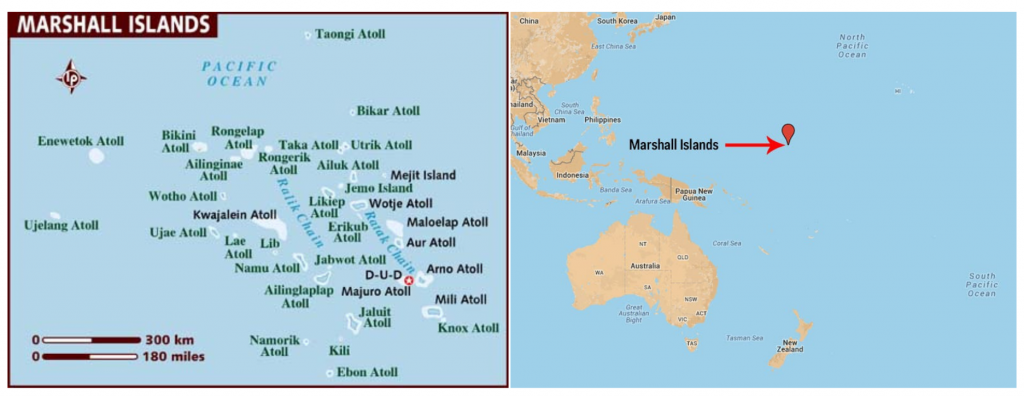
RMI’s Water Problems
For the Republic of Marshall Islands (RMI) as a whole, the supply of natural freshwater is severely limited. The primary source of freshwater is rain which (due to the low elevation of the atolls and islands) soaks directly into the soil and disperses into saltwater which permeates atoll subsoils. In some favorable locations some of the freshwater may accumulate and float on the saltwater below and can be accessed with wells. The major issues and concerns related to overall water management in the RMI are insufficient quantity. Various studies have identified that Majuro’s current 36.5 million gallon reservoir capacity as insufficient and should be doubled in order to help meet growing demand.
The two main water utilities, MWSC on Majuro and Kajur on Ebeye, continue to face great challenges in delivering quality water and services on a consistent and reliable basis. Contamination and pollution are real and present threats to water resources everywhere, including in the water systems, in the groundwater (especially in urban areas), in household catchments, and in coastal areas. For Outer Island households, the Environmental Protection Authority (EPA) has dramatically increased its water quality testing in recent years and has revealed that a high percentage of home water catchments are contaminated, this also is the case in the urban centers. This, in turn, supports the data that show a high and increasing prevalence of water-borne diseases.
Contaminated Water & Health Outcomes
Recent surveys by EPA states high levels of contamination in water catchments across many outer island communities and while methods of treatment are taught at the household level, many are still drinking water straight from the source. As a result, Gastroenteritis is rampant in the Marshall Islands and is the third leading cause of hospital visits for children under the age of 5. Similarly, the RMI has seen outbreaks of Cholera, Typhoid, and Conjunctivitis in the recent past yet little national effort has been made to address and improve water quality in the RMI for both urban and outer island communities.
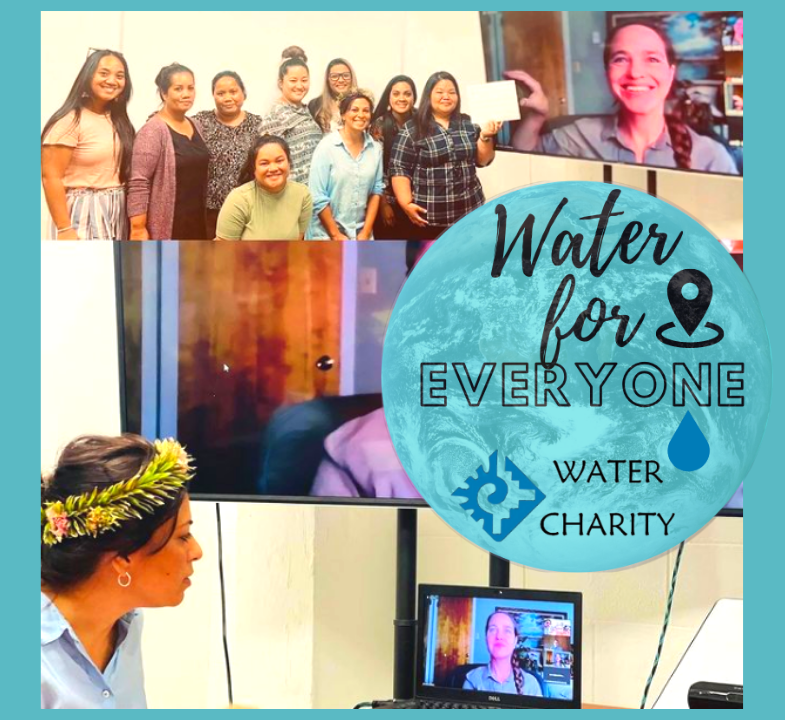
Water Charity Partners with Kora in Okrane
Water Charity has partnered with and supported Kora in Okrane (KIO), a non-profit charitable organization in the Marshall Islands, which in July 2018 launched an initiative to provide every single household, school, and dispensary in the outer islands with SAWYER Point One Water Filter Systems.
Water Charity is one among a number of partners that have been supporting the KIO’s initiatives including the United Nations Development Program and GEF Program, RMI government, SDG Committee, Ministry of Health and Human Services, Ministry of Natural Resources and Commerce, Environmental Protection Authority, and Women United Together Marshall Islands.
Since 2018, KIO distributed filters to all the outer Islands. Its partnership with Water Charity will help KIO reach the last urban areas in the Marshall Islands: the last remaining areas left to distribute water filtration systems are Majuro and Ebeye.
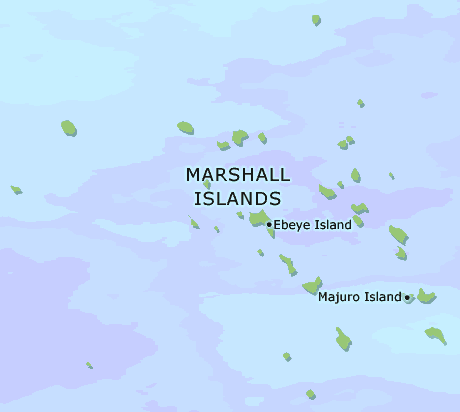
This project has been finished. To read about the Ebeye Water Filter Distribution—The Marshall Islands, CLICK HERE. To read about Water Filter Distribution – Marshall Islands, CLICK HERE.

